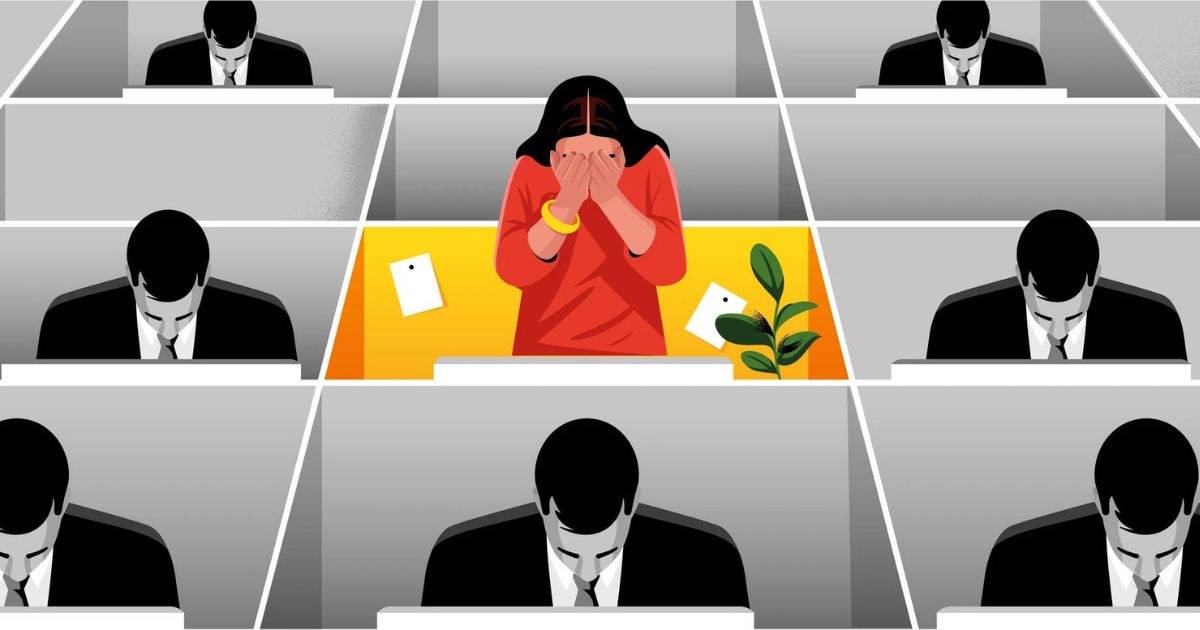In an era marked by unprecedented changes and the rise of remote work, Gen Z, the latest entrants into the professional world, are experiencing heightened levels of anxiety challenges in the workplace.
The turbulence of recent years, coupled with the unique circumstances surrounding their career beginnings, has thrust this generation into uncharted territory, impacting both their mental well-being and workplace engagement.
Anxiety Challenges on the Rise:
For 25-year-old Emma Malcolmson, who transitioned from retail to remote digital public relations, the shift brought forth new challenges. The constant barrage of laptop notifications, faceless virtual communication, and the struggle to interpret the tone of messages from unseen colleagues contributed to a daily sense of anxiety.
Malcolmson reflects on the intensification of stress in a remote setting, stating, “It’s much harder for me to mentally let go of any stresses from the day.”
The global turmoil of the past few years has amplified stress levels for workers of all ages, as evidenced by Gallup’s 2022 workplace survey, where 52% of US and Canadian workers reported feeling stressed daily—a record high. However, the impact on Gen Z is notably pronounced.
A Calm meditation app survey found that 58% of Gen Zers feel anxious frequently or all the time, a significant increase compared to Gen Xers and baby boomers.
Remote Challenges:
The entrance of Gen Z into the workforce has been anything but conventional. Unlike their predecessors, this generation’s initiation into professional life coincided with a worldwide reevaluation of job relationships, primarily driven by the rise of remote work.
With limited on-the-job coaching and the added pressures of layoffs and inflation, Gen Zers find themselves navigating professional life without the traditional guidance observed in office environments.
Gallup’s surveys further revealed that almost half of workers aged 18 to 29 reported their job negatively affecting their mental health. Gen Z emerged as the least engaged and most burnt-out group, with the stress of the workplace manifesting as ambivalence and withdrawal.
The consequences are tangible, as Gen Z employees are taking more sick days, frequently related to mental health challenges.
Impact on Workplace Dynamics:
Anxious teams, as indicated by Morra Aarons-Mele, author of “The Anxious Achiever,” exhibit tendencies that hinder innovation and risk-taking while fostering low psychological safety.
A 2021 survey by the Anxiety and Depression Association of America highlighted the pervasive influence of anxiety on job performance, relationships with coworkers, and interactions with superiors.
The situation poses challenges for managers, especially when dealing with open expressions of feelings about work. While Gen Z’s willingness to share their emotions is commendable, it can hinder professional development.
Managers are finding themselves in the position of addressing not only work-related concerns but also helping younger employees navigate their emotional landscape.
The core of Gen Z’s workplace anxiety centers around uncertainty. The unease associated with entering a new phase of life is further exacerbated by the remote work paradigm and the chaos of a shifting professional landscape.
Lou Ali, a manager at the PR agency Honcho, acknowledges the paradoxical nature of Gen Z’s workplace anxiety—masked by outward confidence, many Gen Zers grapple with self-esteem issues and uncertainties about career progression.
Despite the challenges, most managers understand the unique circumstances faced by Gen Z. The lack of in-person interactions, a vital source of mentorship and guidance for previous generations, leaves younger workers without a reference point.
Managers recognize the importance of offering support and understanding, acknowledging that the uncertainty surrounding remote work and career progression contributes significantly to the anxiety experienced by Gen Z in the workplace.
As Gen Z continues to shape the future workforce, addressing the root causes of their anxiety becomes paramount. Finding a balance between openness about feelings and maintaining professional boundaries is crucial in fostering a supportive workplace environment.
The stakes are high, with potential consequences not only for individual well-being but also for broader economic and societal dynamics.








Leave a Reply
You must be logged in to post a comment.